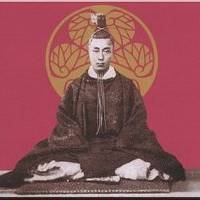Ryotaro Shiba was one of Japan's most popular writers of historical fiction, described in Frank Gibney's introduction to "The Last Shogun" as "Japan's national writer ... his name on a book virtually guarantees a wide readership."
The Last Shogun
Ryotaro Shiba, Translated by Juliet Winters Carpenter
256 pages.
Kodansha, Nonfiction.
Although he published more than 40 works before his death in 1996 little has been translated into English so his name is less well known outside Japan.
He specialized in fictional accounts of historical events, and his books are a delight to read, written in a light, playful register that is served well in this translation.
In "The Last Shogun" he writes about the end of the Shogunate and the restoration of the Emperor in the 1860s. Shiba focuses his attention on political machinations in the corridors of power. Our hero is the titular shogun Yoshinobu Tokugawa. The story whips along under Shiba's biographical approach, which includes accounts of meetings, quotes from documents interwoven into a compelling narrative with pillow talk and reimagined dialogue. Yoshinobu is portrayed as a man who is prepared to do whatever it takes to protect his countrymen, even if it means divesting himself of power and wealth.
Some of Shiba's popularity lies in his ability to show his readers a Japan they could be proud of without resorting to jingoism or revisionism. Shiba's "Last Shogun" is in many ways the kind of hero a modern Japan needs.
Read archived reviews of Japanese classics at jtimes.jp/essential.



















With your current subscription plan you can comment on stories. However, before writing your first comment, please create a display name in the Profile section of your subscriber account page.